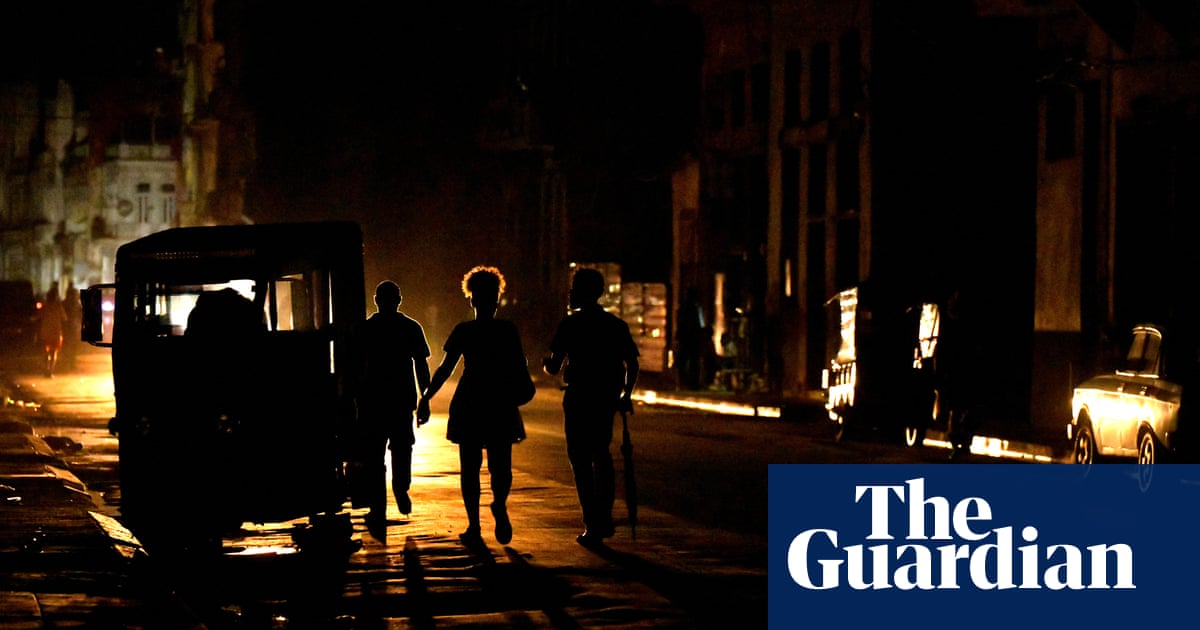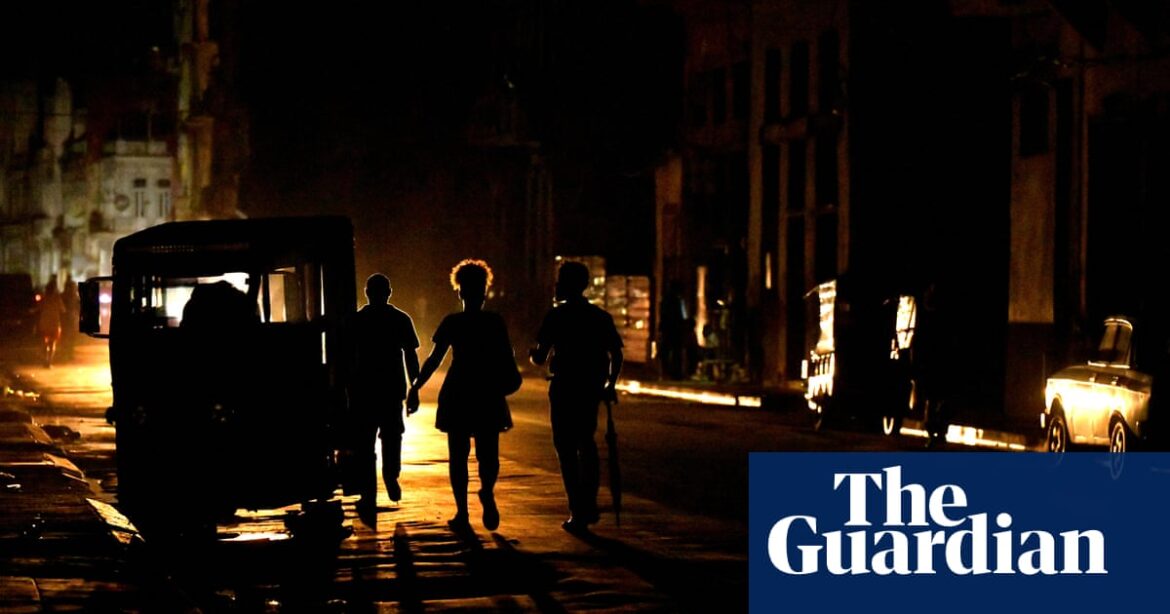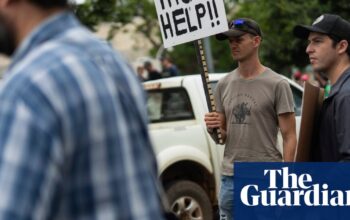
Cuba’s government said on Saturday it had made some progress in gradually re-establishing electrical service across the island, including to hospitals and parts of the capital, Havana, after state-run media earlier reported the national grid had collapsed for a second time in 24 hours.
Most of Cuba’s 10 million people, however, remained without electricity on Saturday afternoon.
Traffic lights were dark at intersections throughout Havana, and most commerce was halted. Long lines formed at state-subsidised shops where Cubans buy bread and other staples.
The country’s top electricity official, Lázaro Guerra, said the grid operator, UNE, was working to raise enough capacity in the system to start several power plants and restore electricity to larger swathes of the country.
“I cannot assure you that we will be able to complete linking the system today, but we are estimating that there should be important progress today,” Guerra said on a TV newscast. The Guardian has verified that parts of the island are regaining electrical service.
Cuba was plunged into blackout for a second time on Saturday after its electrical grid collapsed again hours after authorities announced they had begun re-establishing service.
CubaDebate, a state-run media outlet, said the grid operator, UNE, had reported the “total disconnection of the national electro-energetic system” and was working on re-establishing it.
The electrical grid first collapsed at about midday on Friday after one of the island’s largest power plants failed, leaving more than 10 million people without power.
Even before the collapse, an electricity shortfall on Friday had forced Cuba’s communist-run government to send nonessential state workers home and cancel school classes as it sought to conserve fuel for generation. But lights began to flicker on in scattered pockets across the island early in the evening on Friday, offering some hope that power would be restored. UNE has not yet provided any details on what caused the grid to collapse again on Saturday, or how long it would take to re-establish service.
There have been weeks of worsening blackouts, often lasting 10-20 hours, across much of the island, which Cuba’s government has blamed on deteriorating infrastructure, fuel shortages and rising demand. Strong winds that began with Hurricane Milton last week had also made it harder to deliver scarce fuel from boats offshore, officials have said.
Fuel deliveries to the island have dropped off significantly this year, as Venezuela, Russia and Mexico, once leading suppliers, have reduced their exports to Cuba. Venezuela slashed its deliveries of subsidised fuel by half this year, forcing the island to search for far more expensive oil on the spot market.
Cuba’s government also blames the US trade embargo, as well as sanctions imposed under the former US president Donald Trump, for its difficulties in acquiring fuel and spare parts to operate and maintain its oil-fired plants. On Friday, the US denied any role in the grid collapse in Cuba.
Hurricane Oscar, which is forming north of the Dominican Republic, threatens to bring heavy rains and strong winds to parts of north-eastern Cuba in the coming days, the US National Hurricane Center said.
Source: theguardian.com



